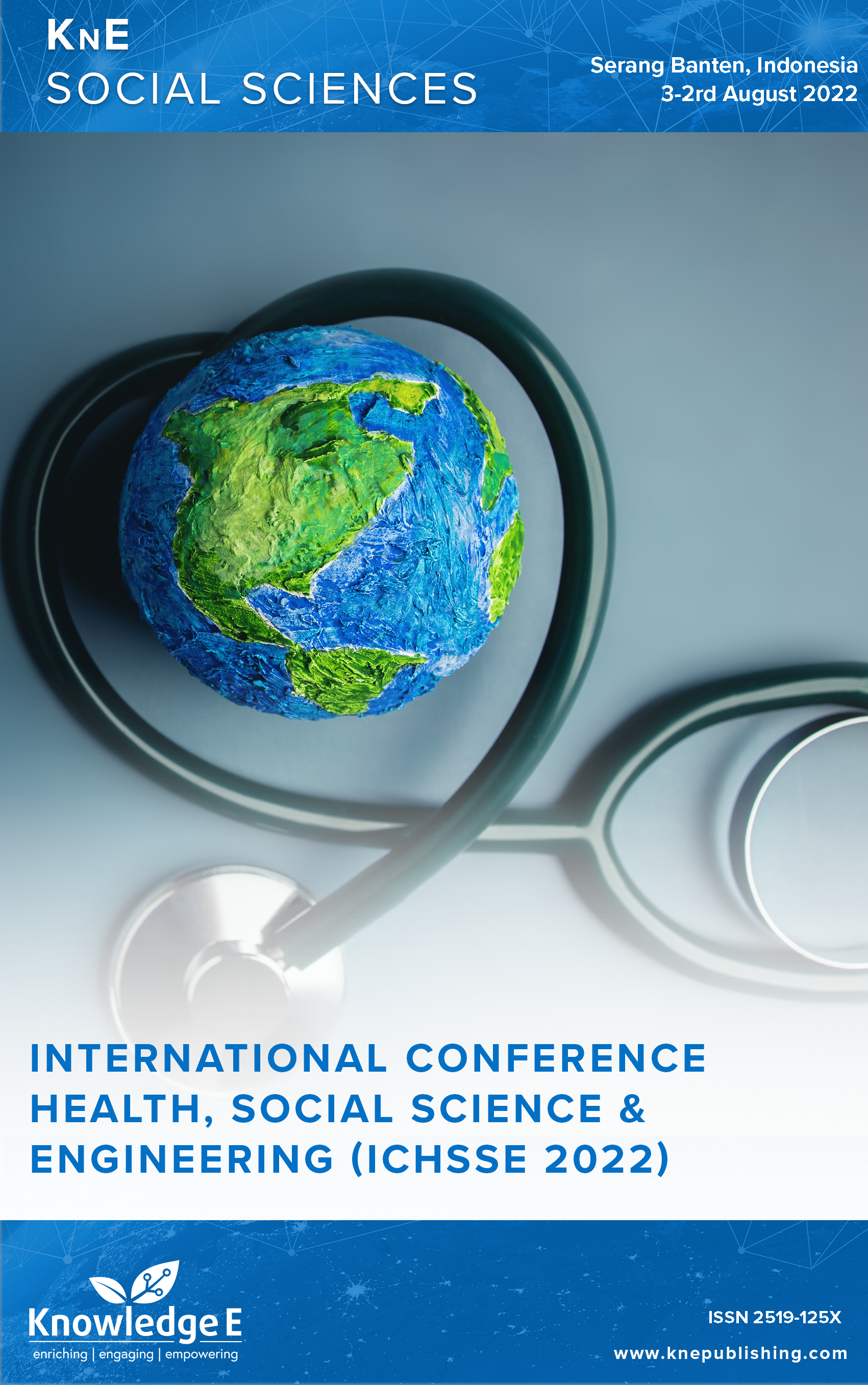Analysis of Mother's Pregnancy Knowledge at Az-Zahra Primary Clinic Tangerang
DOI:
https://doi.org/10.18502/kss.v8i14.13854Abstract
The prevalence of cesarean sections as much as 80% have exceeded the figure recommended by WHO, about 10-15%, supported by several factors. One of them is self-autonomy which is not owned by the mother causing a lack of knowledge about pregnancy. Knowledge has an effect of 1.8 times on readiness for pregnancy, childbirth, and postpartum. Antenatal education is a service requested by most pregnant women worldwide such as childbirth education programs or birth preparation classes. This research uses a qualitative research design. Data collection was done through in-depth interviews using a sample of 9 main informants (pregnant women). The primary and secondary qualitative data were collected through data processing and analysis techniques, imported into NVivo and classified according to the type of data to facilitate the processing and analysis of data in NVivo 12 Plus. Knowledge of the pregnancy process of pregnant women with low results; Knowledge of pregnancy signs of pregnant women with low results; Knowledge of the benefits of pregnancy examination with high results; Knowledge of the examination schedule of pregnant women is high; Knowledge of physical changes of pregnant women with low results; Knowledge of gestational age with high results; Knowledge of pregnancy danger signs with low results. Knowledge of pregnant women about pregnancy with results is still lacking, namely the knowledge of the pregnancy process, signs of pregnancy, physical changes, and signs of danger of pregna Therefore, it is necessary to provide educational services at Pratama Az-Zahra Tangerang Clinic.
Keywords: section caesarea, knowledge, pregnant women, pregnancy
References
[2] Hernanto FF. Pengetahuan Tentang Kehamilan, Dukungan Keluarga dan Kecemasan Ibu Primigravida Trimester III. Pers Psikol Indones. 2016;5(03):232–238.
[3] Irianti I, Herlina N. Buku ajar psikologi mahasiswa kebidanan. Jakarta EGC. 2009;
[4] Yusnidar Y, Suriati I. Pengaruh kelas ibu hamil pada ibu primigravida terhadap pengetahuan tentang perawatan kehamilan. J JKFT. 2021;6(1):1–6.
[5] Fernandes LMM, Lansky S, Oliveira BJ, Friche AAL, Bozlak CT, Shaw BA. Changes in perceived knowledge about childbirth among pregnant women participating in the Senses of Birth intervention in Brazil: A cross-sectional study. 2020 [cited 2021 May 8]; Available from: https://doi.org/10.1186/s12884-020-02874-3
[6] Naariyong S, Poudel KC. Quality of antenatal care services in the Birim North District of Ghana : Contribution of the community-based health planning and services program. 2012;1709–1717.
[7] Bappenas. Penguatan Pelayanan Kesehatan Dasar di Puskemas. Jakarta; 2018. p. 125.
[8] Yanuaria MR, Wulandari RD. Penyusunan Upaya Peningkatan Pelayanan Antenatal Care Berdasarkan voice of the customer utilization improvement of antenatal care based on voice of the customer. Jurnal Administrasi Kesehatan Indonesia. 2013;1.
[9] Annisa NH, Natalia O. Hubungan Pengetahuan Ibu Hamil Trimester III tentang Antenatal Care Terhadap Pelaksanaan K4. J Ilm PANNMED (Pharmacist, Anal Nurse, Nutr Midwivery, Environ Dent. 2021;16(1):120–124.
[10] Hartati S. Hubungan Pengetahuan Ibu Primigravida tentang Tanda Bahaya Kehamilan dengan Kunjungan Antenatal Care Terintegrasi di Puskesmas Harapan Raya Pekanbaru 2017. Menara Ilmu. 2018;XII(10):47–51.
[11] Ali SA, Dero AA, Ali SA, Ali GB. Factors affecting the utilization of antenatal care among pregnant women: A literature review. J Pregnancy Neonatal Med. 2018;02(02).
[12] Sumangkut HP. Analisis Faktor Perilaku Yang Mempengaruhi Pemeriksaan Antenatal Care (ANC) Pada Ibu Hamil Di Puskesmas Kamonji Kota Palu Tahun 2019. Universitas Tadulako; 2020.
[13] Kurniasih E. Hubungan Tingkat Pengetahuan Ibu Hamil Trimester III Tentang Tanda Bahaya Kehamilan Dengan Kepatuhan Antenatal Care (ANC) di Puskesmas Geneng Kabupaten Ngawi. J Chem Inf Model. 2020;53(9):1689–1699.
[14] Tristantia I, Puspitasaria I. Pengetahuan Ibu Hamil Tentang Jadwal Pemeriksaan Kehamilan Di Jepara, Jawa Tengah (Studi Eksploratif). J Ilmu Keperawatan dan Kebidanan. 2021;12(2):450–456.
[15] Nelazyani L, Hikmi H. Gambaran Pengetahuan Ibu Dan Suami Tentang Perubahan Fisik Dan Psikologis Saat Hamil Di Wilayah Kerja Puskesmas Beringin Raya Kota Bengkulutahun 2016. J Midwifery. 2018;6(1):17–25.
[16] Janiwarty B, Pieter HZ. Pendidikan psikologi untuk bidan suatu teori dan terapannya. Yogyakarta Rapha Publ. 2013.
[17] Mariani, Noer EA, Chairunnisa. Faktor-Faktor Yang Berhubungan Dengan Pengetahuan Ibu Hamil Tentang Tanda Tanda Bahaya Kehamilan 1Mariani. Zo Kebidanan.. 2020;10(2):78–89.
[18] Wulandari RD, Laksono AD. Determinants of knowledge of pregnancy danger signs in Indonesia. PLoS One [Internet]. 2020;15(5):1–11. Available from: http://dx.doi.org/10.1371/journal.pone.0232550
[19] Notoatmodjo S. Promosi Kesehatan Dan Ilmu Perilaku. Vol. 20. Jakarta: Rineka Cipta; 2012.
[20] Windiyati DP. Hubungan Antara Pengetahuan Tentang Resiko Tinggi Kehamilan dengan sikap pemeriksaan Antenatal Care (ANC). 2017;7:115–122.

